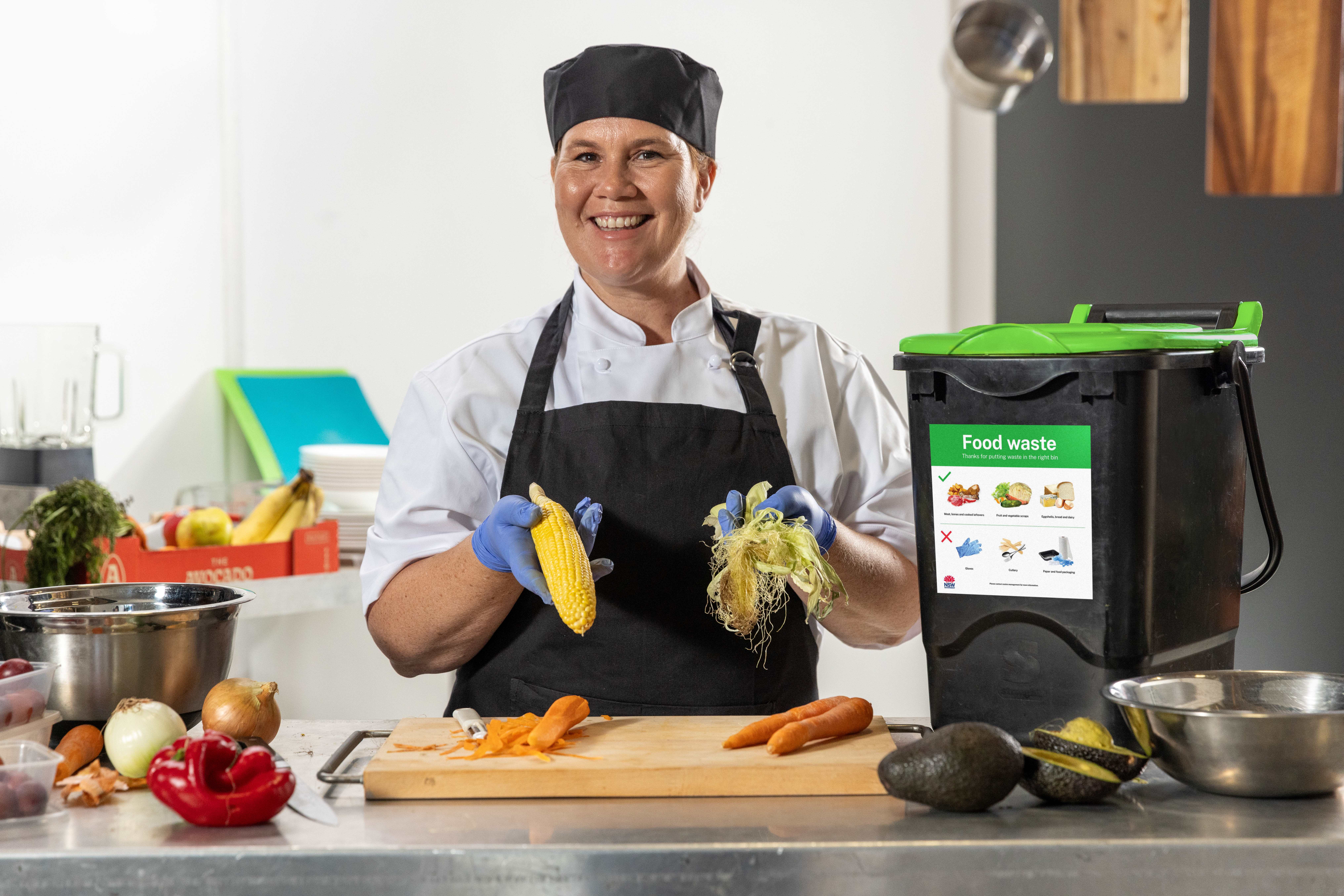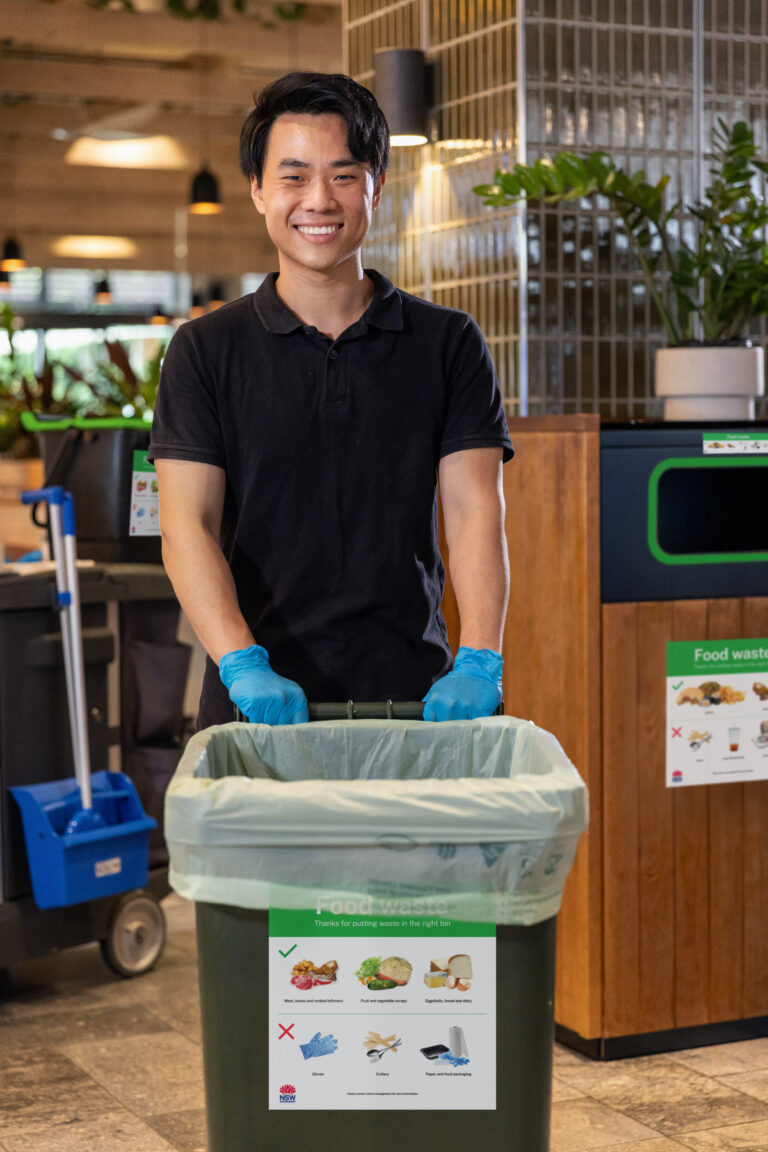

Businesses – who and when?
It’s an exciting time to be involved in organics waste processing in NSW.
In fact, it’s an exciting time generally in NSW as we push ahead with initiatives and legislation to accelerate our transition to a circular economy.
NSW passed landmark legislation in February this year, becoming the first state in Australia to implement a mandate for food organics and garden organics (FOGO) recycling.
By 1 July 2030, councils will need to provide all NSW households who receive a red-lid waste collection service, with a FOGO waste service. Businesses or institutions that sell or handle food, for example, supermarkets, cafes, schools and hotels, will need to have a source-separated weekly food organics collection service in place.
The legislation requires FOGO collections for households be in place by July 2030, and for businesses in stages from July 2026.
The business mandate will start with the largest food waste generators from 1 July 2026, rolling out to smaller generators in phases up to 2030, depending on how much waste they send to landfill each week.
There’s also a requirement for large supermarkets to record the amounts and types of surplus food donated to charities from 1 July 2026.
It applies only to businesses in the retail and hospitality sectors, as well as institutions such as schools, hospitals and correctional centres. Key dates and volumes are as follows:
What’s driving this?
Research in 2023 found NSW businesses sent over a quarter of their organics waste to landfill, with 45% of the 780,000 tonnes per year being food waste.
The EPA’s 2023 Commercial and industrial waste audit found food waste is the primary waste material in garbage bags sent to landfill across every business sector, except health care and social assistance where personal hygiene products took the lead.
Around 56% of the food waste from these sectors could have been recycled into quality compost products and soil conditioners, while having a separate food waste collection can help businesses in many ways, including:
It’s safe to say all of us here want to leave the environment in a better shape for the next generation.
Circularity is key to this, and compost generated from food and garden organics is the perfect example of circularity, because it returns nutrient-rich resources back to the land and helps to grow more food.
Compost can deliver benefits across a range of industries and uses from sporting fields, mine and roadside rehabilitation to urban amenity, agriculture and horticulture.
See this brought to life in our Cool Compost series of videos and podcasts.

Supporting businesses
The transition to statewide FOGO is the biggest change to household kerbside services in a generation.
Bigger changes to systems and processes will be required for businesses and institutions than in the household sector.
That’s why we’re providing grants, guidance and expert advice to support the transition.
Businesses can use the Bin Trim app to access advice and rebates of up to $50,000 for onsite equipment like bins and storage, and to find collections services in their areas. The Business food waste partnership grants provide up to $200,000 for projects that educate and upskill businesses and institutions to avoid, reduce and source separate food waste.
The funding supports projects to:
These grants have already supported collection companies such as ORG – Organics Recycling Group and CAL technologies – to work with their customers to maximise recovery and minimise contamination.
They are also funding major hotel chains such as Accor to train staff across its NSW network to source separate correctly, as well as councils to work with their food businesses to raise awareness of the new requirements and educate them on how to keep the collected food waste clean.
From September, we’re rolling out a statewide advertising campaign to raise awareness of the upcoming requirements and ensure businesses have the knowledge and resources needed to train staff and successfully implement best practice food waste source separation.
We’re also supporting businesses to ensure they have access to infrastructure and knowledge about reducing food waste, including though food donation, to really maximise efficiency and reduce costs.
The goal is that by 2030, food waste generation in the C&I sector has been minimised, with most of it donated, if fit for human consumption, or recycled into quality products.
One of the great things about food waste recycling is the way it connects the urgent systemic changes we need to address – climate change and dwindling landfill capacity – with simple, individual action.
Just by separating their food and garden organics from other waste, individuals can make a tangible contribution towards reducing pressure on landfill, increasing recycling, decreasing emissions, and returning organic material back to where it came from – the earth.
For businesses that process this waste, the future is bright, with the FOGO mandates bringing certainty, a driver to recycle a major waste stream and, if well managed, an opportunity to save money on disposal costs.
For more information on the EPA’s food waste programs visit www.epa.nsw.gov.au/fogo or email [email protected]